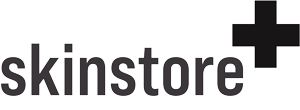All about acne & acne scarring
Acne is a common skin condition affecting more than 85% of teens, and some individuals in adulthood as well. It is commonly found on the face, neck, back, chest, and shoulders. By understanding acne and what causes it, you will also understand how to better manage it and regain self-confidence, as understandably acne can often lead to feelings of a negative self-image.
Direct causes of acne:
- Hormone changes.
- Over-proliferation of bacteria (P. acnes).
- Stress.
- Medications (like oral steroids).
- Other medical conditions (PCOS).
- Over-production of sebum (natural skin oil produced by the sebaceous glands in the skin).
- Genetic predisposition.
- Clogged follicles.
- Dead skin cells that build up on the skin.
Indirect causes of acne (these could be contributing to your acne breakouts):
- Whey protein (if you are lactose intolerant).
- Poor diet.
- Over-use of active ingredients.
- Harsh scrubs.
- Reusing an unclean washcloth.
- Conditioner that lands on your face while you wash your hair.
- Dirty towels and pillowcases.
- Dirty make-up brushes.
- Smoking (can lead to atypical post-adolescent acne which is non-inflammatory acne. Smoking can also lead to an inflammatory condition called Acne Inversa – which can lead to irreversible acne scarring).
- Sunburn.
- Coconut oil.
- Picking at pimples (bathroom surgery).
- Food intolerances.
- Sleeping with your make-up on/not washing your face before going to bed.
- Using the wrong skincare products.
Degrees of acne:
- Grade 1: Whiteheads and blackheads.
- Grade 2: Papules and pustules (non-inflamed).
- Grade 3: Papules, pustules, and inflamed nodules.
- Grade 4: Pustules and inflamed, painful nodules.

Acne treatments:
Please see SKIN CONDITIONS YOU SHOULD KNOW ABOUT.
Why SPF is SUPER important when it comes to acne:
Wearing SPF daily is always very important but when it comes to acne, it’s SUPER important. 10 Minutes of protected sun exposure can in some cases help to decrease acne, but an excessive amount of UV exposure is more likely to increase inflammation and post-inflammatory hyperpigmentation in the skin.
Unprotected sun exposure can also disrupt the barrier of the skin by burning the skin, this can lead to acne breakouts. Please keep in mind that sunscreen is not formulated to specifically treat breakouts but more so to prevent them. Some SPFs also contain fabulous ingredients like hyaluronic acid, niacinamide, ceramides, and antioxidants.
We recommend trying one of these SPFs if you are prone to breakouts:
- Heliocare 360 Gel Oil-Free (tinted versions are also available).
- Heliocare 360 Water Gel
- La Roche-Posay Anthelios UVMUNE 400 Oil Control Fluid
- La Roche-Posay Anthelios Oil Control (Dry Touch)
- Heliocare 360 Seasonal Set
Acne scarring:
Acne scars are notoriously difficult to get rid of once they are there, that’s why it’s best to avoid getting them at all costs. This is especially true for teenagers and young adults. Any scar occurs because of damage to the skin, there are 2 types of common acne scars:
- Atrophic scars:
These scars occur when the skin loses collagen due to damage that extends down to the dermal layer. There are 3 main types of atrophic scars, rolling scars, boxcar scars, and icepick scars.
- Treatment: Chemical peels, micro-needling, laser, and dermal grafting.

- Hypertrophic scars:
An excessive amount of collagen is deposited into the area of trauma, and an increase in collagenase activity (the enzyme which breaks down collagen). Hypertrophic scars are predominantly found on darker Fitzpatrick skin types. These scars are pinkish and raised, and do not extend the original borders of the scar.
- Treatment: Silicone gel, intralesional steroid therapy, Cryotherapy, pulsed dye laser, and surgery.

Oily skin product regime for Accutane and non-Accutane users is available here (scroll down to Oily skin type once you have clicked the link).
Acne skin (specifically) spot treatment options (non-Accutane users):
- NeoStrata Targeted Clarifying Gel
- Lamelle Clarity Active Control
- CeraVe Blemish Control Gel
- La Roche-Posay Effaclar Duo+
Acne skin (specifically) spot treatment options (Accutane users):
When to see a doctor:
- If at any time the lesions become concerning.
- When the lesions are painful.
- If the lesions are leaving lasting wounds.
- Inflamed lesions are present.
- Lesions that feel like they sit under the skin.
- The lesions take up most of the affected area.
- Adult acne lesions (caused by hormonal triggers – we advise that you please visit your doctor/Dermatologist).

It's best to stay away from bathroom surgery (aka pimple popping) because often when we “pop” acne lesions ourselves, most individuals tend to not follow basic sterile guidelines before extracting an acne lesion.
These include:
- Hand washing.
- Wearing clean gloves.
- Wash the area with the correct soap (to not disrupt the skin barrier) and water first.
- Cleansing the area with an alcohol swab.
- Using a lancet to first “puncture” a tiny hole in the skin.
- Using the correct aftercare products.
- Not popping inflamed lesions (rather leave it to resolve on its own or seek help from a medical professional).
No matter how satisfying it is, it’s never a good idea to just “pop” a pimple! It’s best to leave it to resolve on its own, but if you cannot help it, at least try to follow the above-mentioned guidelines.

